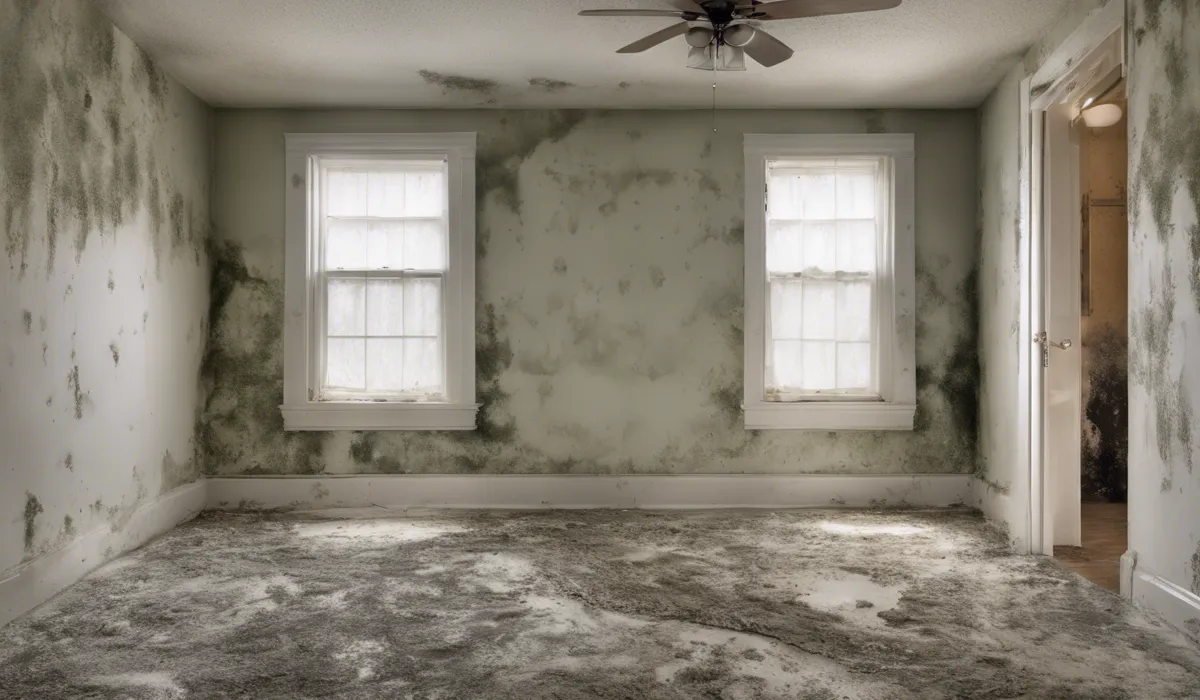In some cases, tenants may withhold rent for mold if it significantly affects habitability and the landlord fails to address it promptly. However, specific laws vary by location, and tenants should consult local housing regulations and possibly seek legal advice before withholding rent to avoid breaching their lease.
Rights and Responsibilities as a Tenant Regarding Mold

Explanation of Common Tenant Rights
As a tenant, you have the right to a habitable living environment. This means your rental should be free from severe issues such as mold, which can cause health problems.
Your rights include the landlord’s duty to address any mold problems once they are aware of them.
Landlord Responsibilities for Property Maintenance
Landlords are responsible for keeping rental properties in livable condition. This includes promptly addressing and rectifying any mold infestations to ensure the health and safety of tenants.
Situations When Withholding Rent is Legal
Tenants may withhold rent if the landlord fails to resolve significant habitability issues like mold after being notified. However, this should always be a last resort and done in accordance with local laws.
Role of State and Local Laws
State and local laws dictate when and how you can withhold rent for mold issues. It’s essential to understand these laws before taking any action, as they can vary widely depending on your location.
Documenting Mold Issues and Communication
Documenting mold problems and all communications with your landlord is critical. It serves as evidence should you need to withhold rent or take legal action. Always communicate in writing and keep copies of everything.
Process of Withholding Rent for Mold Issues

Initial Steps Before Withholding Rent
Before withholding rent, notify your landlord of the mold issue in writing and allow a reasonable time for them to address it. If there’s no response, consult local housing laws to understand the next steps.
Notifying Your Landlord Properly
When you discover mold, immediately notify your landlord in writing, detailing the problem and requesting prompt action. Keep a copy of this notification for your records.
Legal Requirements for Rent Withholding
In many jurisdictions, you may be required to place withheld rent into an escrow account as a show of good faith that you’re willing to pay once the issue is resolved.
Potential Consequences of Improper Withholding
Improperly withholding rent can lead to eviction or legal action against you. It’s crucial to follow the correct legal procedures to avoid these outcomes.
Seeking Legal Assistance
If you’re considering withholding rent due to mold, it may be wise to seek legal assistance. A lawyer can guide you through the process and help protect your rights as a tenant.
Alternatives to Withholding Rent

Requesting Repairs and Setting Deadlines
Instead of withholding rent, you can request repairs in writing and set a reasonable deadline for the landlord to address the mold issue.
Contacting Health or Building Inspectors
If your landlord is unresponsive, contact your local health or building inspectors. They can issue a notice to your landlord and may conduct an inspection.
Terminating the Lease
If the mold makes your home uninhabitable and the landlord has not remedied the situation, you may have the option to terminate your lease early without penalty.
Suing for Damages
You can also consider suing your landlord for damages in small claims court or regular court if the mold has caused health issues or property damage.
FAQs About Withholding Rent for Mold
Can I legally withhold rent if my apartment has mold?
It depends on your location and the severity of the mold issue. Tenants may withhold rent if the mold significantly affects habitability and the landlord fails to address it, but you should check local housing regulations and consider legal advice first.
What should I do before withholding rent for mold issues?
Before withholding rent, notify your landlord about the mold in writing, document the problem, check your local housing laws, and possibly seek legal advice to ensure you’re compliant with your lease terms and local regulations.
Will I be evicted for withholding rent due to mold?
Withholding rent without following proper legal procedures can lead to eviction. Always consult local laws and seek legal advice to handle the situation correctly and avoid breaching your lease.
How do I prove mold is affecting habitability in my rental?
To prove mold is affecting habitability, document the presence and severity of the mold with photos, videos, and possibly professional assessments, and demonstrate how it affects your living conditions.
Can I ask for a rent reduction because of the mold?
Yes, you can negotiate with your landlord for a rent reduction due to mold, but it’s best to have the agreement in writing and to follow local housing laws during the negotiation process.
Final Thoughts
Tenants may have the option to withhold rent for mold issues that compromise habitability, but this is contingent on local housing laws and the landlord’s response to the problem.
It’s crucial for tenants to understand their jurisdiction’s regulations and consider professional legal counsel to ensure they don’t violate their lease terms.
